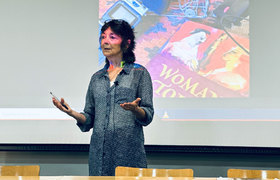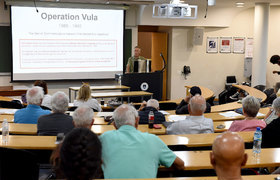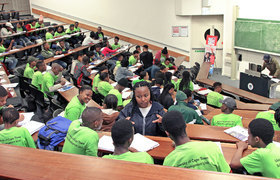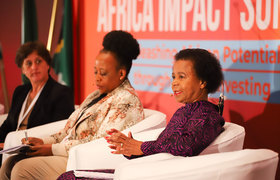‘Humanity is at a crossroads’
31 January 2024 | Story Kamva Somdyala. Photos Je’nine May. Read time 4 min.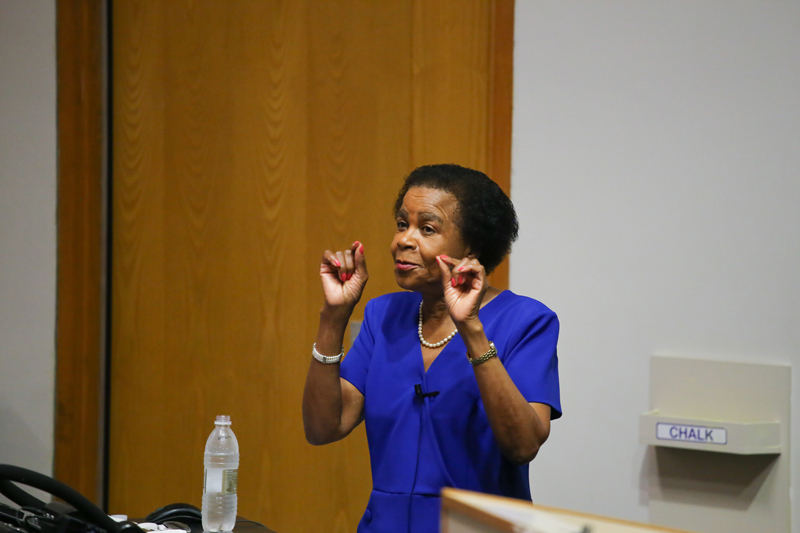
“Humanity is at a crossroads, globally. Our own country is at a crossroads.” This was the crux of former University of Cape Town (UCT) Vice-Chancellor Dr Mamphela Ramphele’s Summer School lecture, titled “What does compassion, or ubuntu, mean in contemporary South Africa?”. The lecture was held on Saturday, 27 January.
“The multiple crises that confront us give us an opportunity to look at them and despair or as an opportunity for us to emerge from them as better versions of who we are as human beings,” said Dr Ramphele.
Her lecture covered two broad themes: What does it mean to be human? How can humanity
re-embrace the essence of being human?
It is useful, said Ramphele, to consider that as Africans, we do not value enough the wisdom and richness of our continent. “We forget that we have the privilege of living on a continent which is the cradle of humanity and human civilisation. The heritage of our ancestors is that they understood there is no way human beings can survive without caring for one another. It is that understanding that lead to the evolution of the philosophy of ubuntu. The wisdom of ubuntu is present across the continent in different designations.”
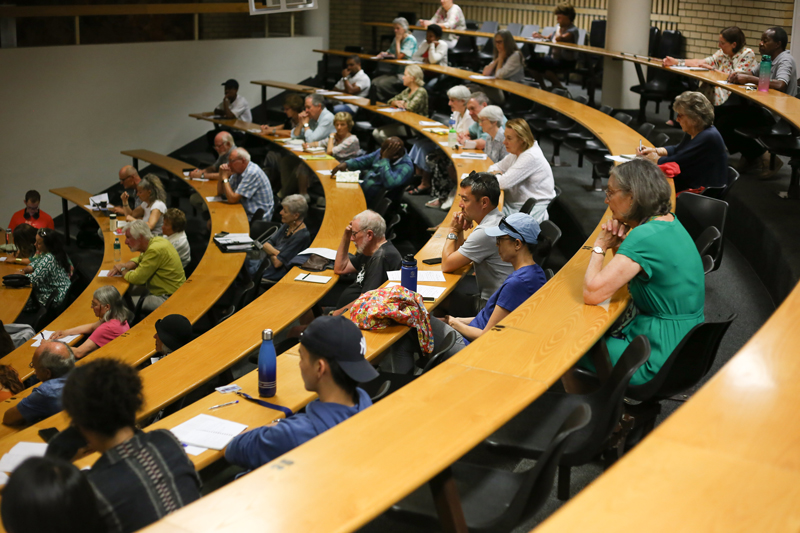
Ramphele said that the very essence of ubuntu is undergirded by being human in a way that not only sustains life but gives meaning to who we are.
“We have a tendency of simplifying ubuntu as ‘I am because you are’, which sounds transactional, whereas ubuntu is a much deeper concept. On a philosophical understanding, it is that human beings are quintessentially relational.”
She added: “We are inextricably linked, interconnected, and interdependent – from family to communities to the global community.”
COVID-19 lessons
Ramphele referenced the COVID-19 pandemic as a striking lesson that reminded us of the importance of relationships. The isolation and lockdowns imposed were a real rupture of what we regarded as normal, she noted.
At the same time, many people were losing family members, leaving people in permanent isolation.
“Somehow, crises have a way of re-awakening us to ourselves.”
“Epidemiologists predicted that millions of lives would be lost to COVID-19 in Africa – it didn’t happen as they had predicted. Some people are suggesting that the protective factor was ubuntu; relationality and caring for others. In my village in Limpopo, there was always a sense of community and remembering and caring for the old and frail, for example. Somehow, crises have a way of re-awakening us to ourselves.”
‘The possibilities are endless’
Turning to the question of how humanity can re-embrace the essence of being human, Ramphele picked apart the “survival of the fittest” school of thought, and instead relied on Julian Abel’s notion of “survival of the kindest”.
“We are wired to be compassionate as human beings. Given that this is the case, why are we not? Why do wars and conflicts continue? Why does harm to the environment continue? My view is that we have bought into the survival-of-the-fittest rhetoric, rather than the obvious experiences we have as human beings. What matters is kindness, [as] this enables much more love, peace, joy, sharing and harmony with nature.”
She concluded: “We need to re-imagine what our communities would look like if we returned to the essence of being human; if we were to become people of ubuntu. The possibilities are endless because we would be supporting one another and treating one another with dignity. There would be happy spaces in our homes and workplaces. Society would benefit. This is possible.”
 This work is licensed under a Creative Commons Attribution-NoDerivatives 4.0 International License.
This work is licensed under a Creative Commons Attribution-NoDerivatives 4.0 International License.
Please view the republishing articles page for more information.







